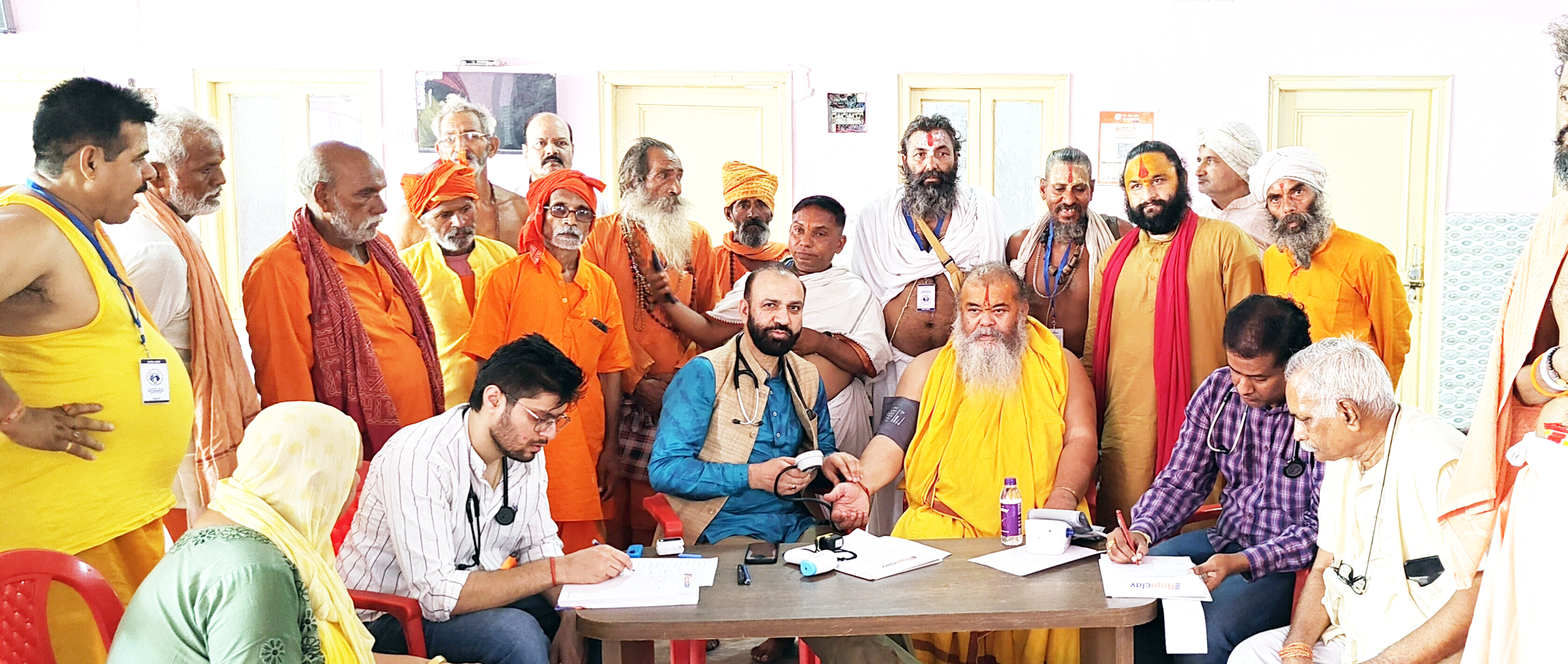
early times report
Jammu , July 13: Keeping in view ever increasing rush of the devotees enroute Amarnath Yatra which is known for its difficult and high altitude terrains, Head Department of Cardiology GMCH Jammu Dr Sushil Sharma held a day long cardiac awareness cum health check up camp at Shri Ram Mandir , Purani Mandi Jammu. The Temple serves a base camp for sadhus undertaking the Amarnath Yatra, where preparations and registration, are carried out before their departure. The camp aimed to provide awareness and education to Amaranth Yatra pilgrims and local residents about the potential cardiovascular risks associated with high altitude travel and to provide guidance on preventive measures. The camp aimed to ensure a safe and smooth pilgrimage for all.
While delivering lecture Dr Sushil stated that the annual Amarnath Yatra, a revered spiritual journey to the 3,888-meter-high holy Amarnath Cave in the Himalayas, draws thousands of pilgrims from across India and beyond. However, this challenging high-altitude trek is not without risks especially for individuals with underlying cardiovascular conditions or those unaware of the physiological stress that high altitudes impose on the heart and lungs.
He elaborated that at elevations above 2,500 meters, the atmospheric oxygen level drops significantly. The body responds by increasing heart rate, blood pressure, and respiratory rate. For individuals with pre-existing coronary artery disease, hypertension, heart failure, or those with silent cardiac disease, this can precipitate serious complications including Myocardial infarction , Sudden cardiac death, High-altitude pulmonary edema (HAPE) and High altitude cerebral edema( HACE). Moreover, unacclimatized pilgrims are often exposed to abrupt altitude changes, strenuous physical exertion, low temperatures, and dehydration, all of which amplify cardiovascular stress.
Without prior cardiovascular screening, they may be unaware of blocked coronary arteries or poorly controlled hypertension. High altitude can unmask these conditions, leading to cardiac arrest or collapse en route. Recent reports have shown a noticeable increase in sudden deaths during the yatra, with cardiac causes accounting for the majority of these fatalities. Many of these deaths occur within the first few days of ascent when acclimatization is incomplete. Pilgrims should also be counseled about warning symptoms like Chest pain or discomfort, Shortness of Breath , Dizziness or lightheadedness, fatique and palpitations. He Advised people to follow the Strategies for a safe trip to high altitudes such as increasing altitude gradually so the body has time to adjust to lower levels of oxygen, drinking enough water and fluids to stay hydrated, adjusting medications to reduce the likelihood of cardiovascular events. Planning a gradual ascent and establishing emergency descent plans and awareness of the closest hospitals.
In concluding remarks Dr Sushil said that for individuals with hidden or known cardiac conditions, the pilgrimage may pose serious risk. The precautions and knowledge of Symptoms during high altitude travel are life savings.
Management Committee of the Shri Ram Mandir Mahant Shri Rameshwer Dass and Dr Satya Narayan appreciated the efforts of Dr Sushil and his team for conducting cardiac awareness cum health Check up camp for yatris and local residents . Shri Kuldeep Raj Dubey ( MLA Reasi ) also grace the occasion .
Others who were part of this camp include Dr Venkatesh Yellupu and Dr Dishant Kambhol. Paramedics and volunteers include Kamal Sharma , Raghav Rajput, Ranjeet Singh, Gourav Sharma , Vikas Kumar , Rajinder Singh , Shubham Sharma , Mukesh Kumar , Makhan Sharma, Rahul Vaid , Rohit Nayyar , Anmol Singh and Nirvair Singh Bali .
|
